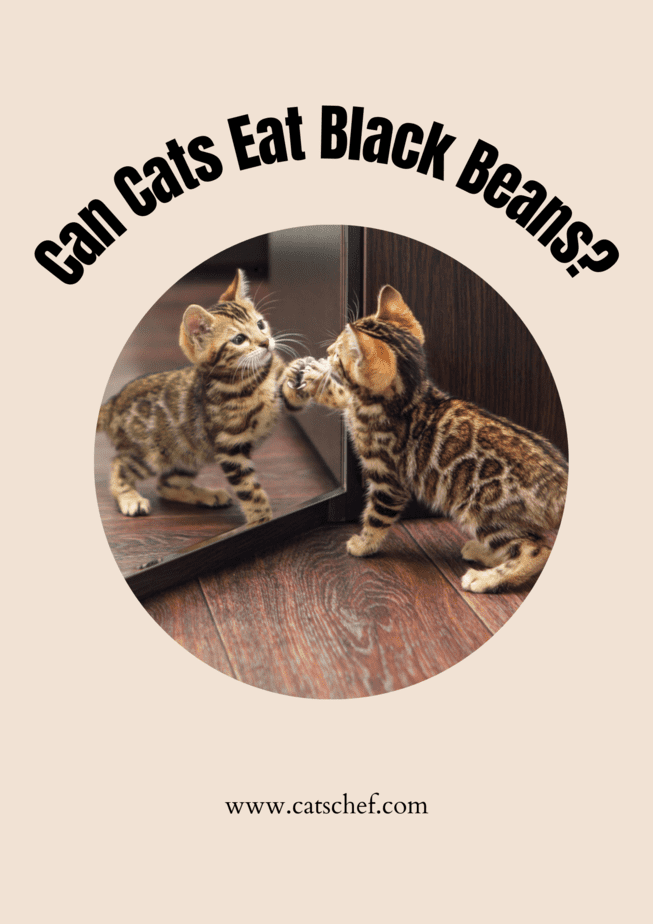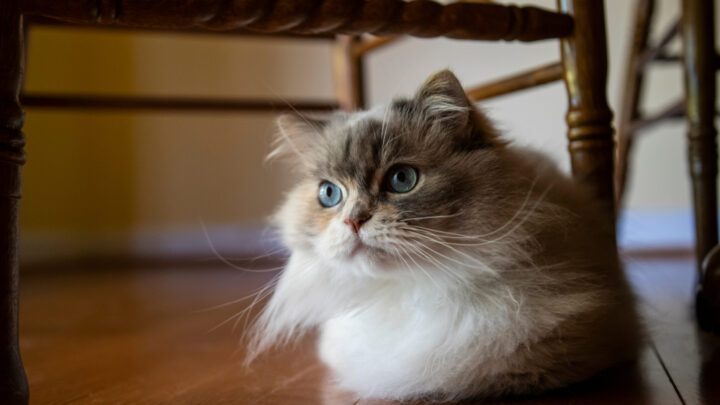Cats’ adventurous spirits never cease to amaze us. There’s proof of their inquisitiveness everywhere around us. Black beans just happen to spark her curiosity but you’re not sure: Can cats eat black beans at all?
You may have bought canned beans to use for dinner, but your pet has other plans with it. She’s intrigued by them because they just happen to resemble her wet food, which she’s crazy about.
I understand where the confusion comes in because our pets believe in routine. A can means wet food, right? If this is the case, then you might have some trouble with negotiation over whose beans they are. Good luck with that!
However, if you lose the fight, what’s going to happen? We know human foods generally aren’t the best fit for our furry friends, but what can go wrong? Can cats eat black beans even if they’re human food?
Can cats eat black beans?
We know these legumes are a healthy choice for humans as they’re abundant in a number of nutrients. However, nothing can slip past our mischievous creatures, so black beans may catch the eye of your predator.
This can be an awkward moment that turns into a stare-down where you will either give in to her wishes or carry on with making dinner. I’m no expert, but from my own experience, I know how things usually go down.
To save yourself from the unnecessary struggle with your furry monster, I’m going to reveal to you whether cats can eat black beans and in what ways. Read on for more detail about these super-veggies.
What are the health benefits?
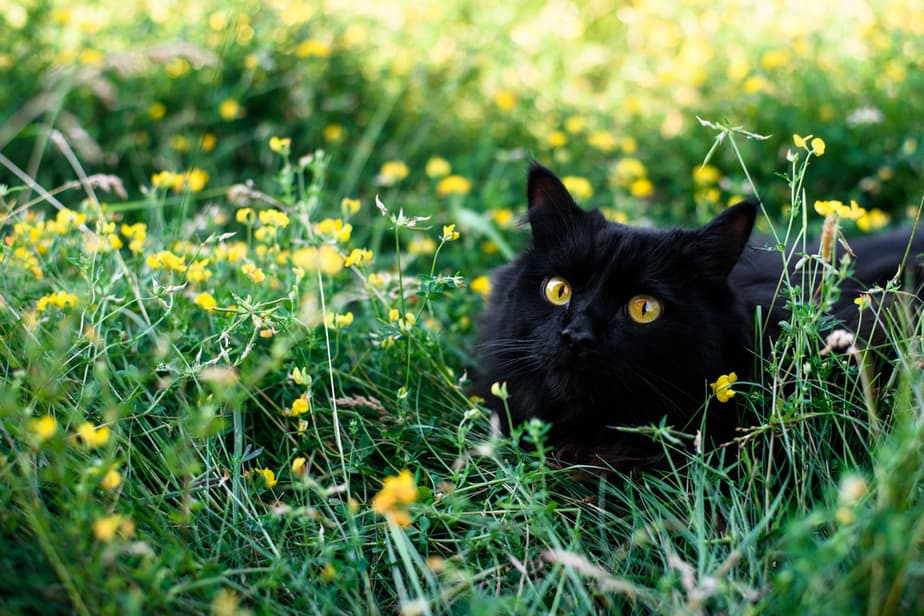
We love these veggies and that love isn’t linked to Mr. Bean. Or perhaps it is? That’s beside the point. They’re an amazing source of health supplements that are crucial for our health.
They’re even called superfoods because of the number of health benefits they hold. They have a fair nutritional value and are a top food for vegetarians. However, where do cats fit in all of this?
1. Prized for protein
These black legumes are known for their high protein content, just like any other beans. This nutrient is one of the most crucial ones for your feline.
Protein provides her with a much-needed energy source and helps keep her fit and healthy. Fortunately for both you and your pet, black beans are abundant in protein.
This nutrient helps regulate your cat’s muscle contractions as well as the nervous system. Various bodily functions are dependent on protein, so make sure your pet’s getting enough of it.
However, the downside to black beans is that they’re vegetables. What’s wrong with that? Well, you know how felines are carnivores, right? It means they thrive on animal-derived foods like meat.
While they can receive some benefits from black beans, it’s not an ideal choice for her diet. Yes, they serve as a great addition, but cannot replace the meat in any way.
2. Black beans are packed with fiber
Next to protein, black beans have another trick up their sleeves. They’re rich in dietary fiber that’s good for your pet’s digestive health.
However, foods that are rich in fiber are double-edged swords. You don’t want her to overindulge because even though it can help with loosening stools, too much and it can have an adverse effect on your cat.
It’s likely to cause constipation if large portions are ingested. Therefore, make sure your pet has the right amount of dietary fiber that’s only going to benefit her digestive health. If in doubt, contact your vet for advice on how to best introduce fiber to her diet.
3. An abundance of vitamins and minerals
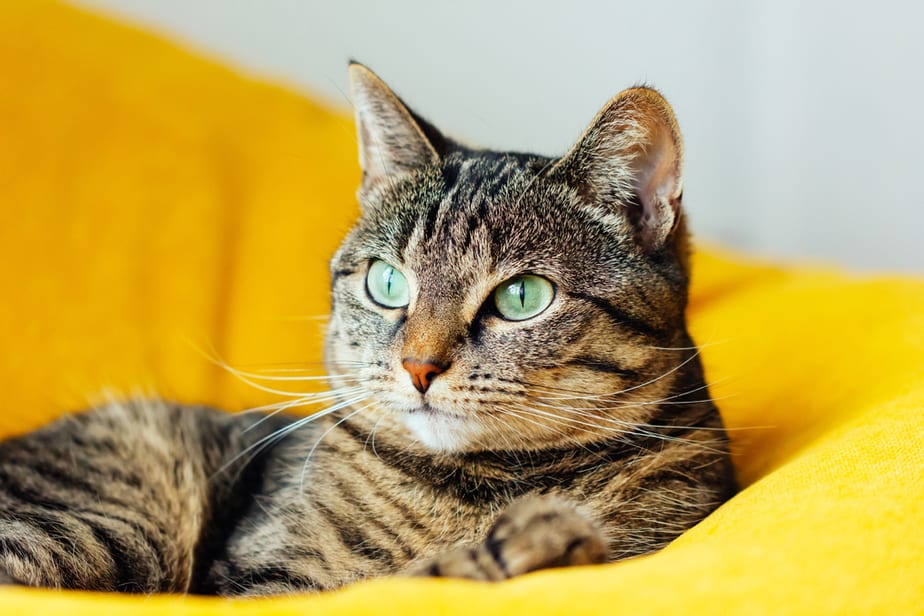
Alongside protein and dietary fiber, black beans are an amazing source of other nutrients that aren’t just healthy for your cat but essential.
These vitamins and minerals are necessary for normal functioning and a deficiency in one or more of these is likely to cause some disturbances in her health.
For instance, vitamin A found in these black snacks is important for your pet’s vision. They’re nocturnal animals, so dark shouldn’t be their enemy, but rather the opposite.
Other vitamins that are of great significance to felines are vitamins E and K, which are powerful antioxidants. They help fight free radicals in the body and prevent inflammation and certain diseases.
Also, they’re known to ward off blood clots as well. Vitamin K, along with calcium, strengthens your feline’s teeth and bones. As if this wasn’t enough, black beans are loaded with vitamin C, which as we all know, is an immune booster.
Moreover, a plethora of other minerals such as iron, zinc, magnesium, and others are found in these little veggies. All of them are required for cats to maintain their health top-notch and for proper functioning.
What are the drawbacks?
Despite all of the health benefits cats can get from eating black beans, they have some downsides to it. We’ve mentioned before that plant material and felines aren’t really a match made in heaven.
However, there are some other concerns when it comes to these black snacks. You may think these small veggies don’t stand a chance of harming your pet, but you’re wrong.
Cats can eat black beans, but…
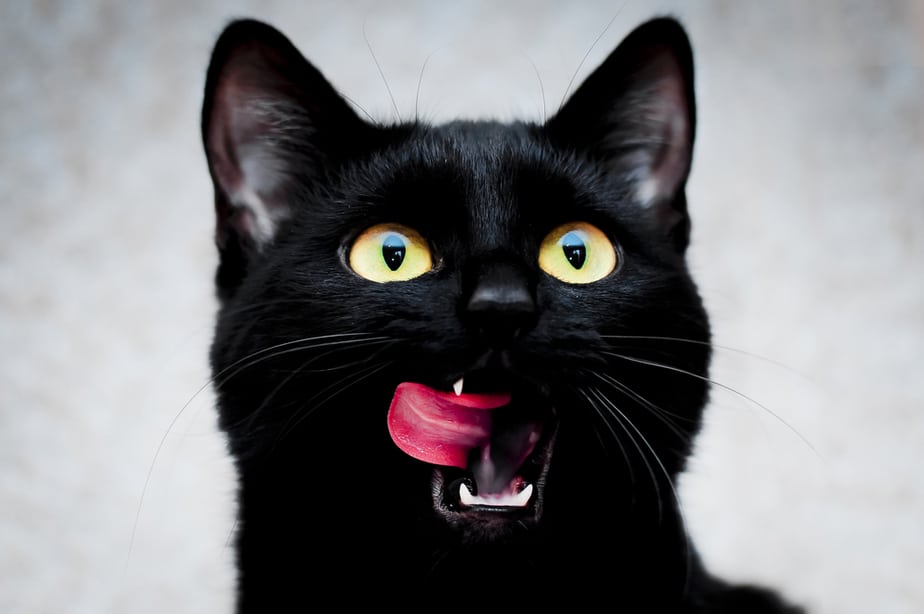
Unfortunately, black beans can be a choking hazard for cats. If your pet’s a guzzler, then you should especially keep an eye on her when she’s feasting on these.
They’re small and round, and it seems as if they have no potential of getting stuck in your feline’s throat. However, this isn’t the case because cats are in fact small and delicate creatures.
Swallowing a whole bunch of black beans can turn out to be a disaster. Moreover, they can get stuck in her teeth and before you know it, your pet’s running around the house pawing at her mouth.
Black beans are unlikely to cause bowel obstruction because they’re small in size, but you should never undermine the possibility of that happening. It’s an unfortunate event when it does happen because their hard shells aren’t easily digestible.
The chances of your cat choking on black beans or them causing an obstruction comes from raw beans. Cooked beans shouldn’t pose any problem.
Can cats eat raw black beans?
Now you know that raw black beans pose a choking risk, why else shouldn’t you feed your pet these? I’m not sure she’d take them even if you tried, but before you do, read this warning.
You should never feed your feline raw black beans because they can be poisonous to her. If your cat’s been picking on those raw beans lately, then it’s possible she could get phytohemagglutinin poisoning.
It’s a type of toxicity that occurs when your pet has eaten too many raw black beans, or any other type of beans really. You’d notice signs such as vomiting, diarrhea, as well as nausea.
Besides, just like all raw foods, raw black beans can transmit certain diseases such as E. coli. So, everything points to these being harmful to felines.
If you’re not planning on buying raw beans and then cooking them afterward, don’t offer them to your cat. All in all, they are detrimental to your cat’s health so make sure she stays away from them.
What about cooked beans?
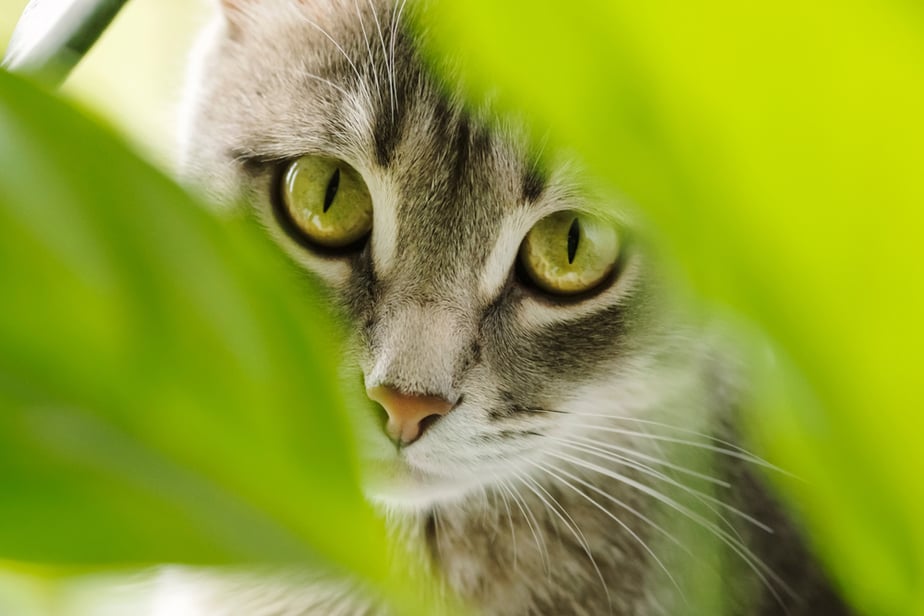
This is the only way you’re supposed to feed black beans to your pet. We’ve excluded the raw ones from the offer, so cooked ones are the best and only choice.
The process of cooking them in boiling hot water guarantees that any potential bacteria will be killed. That way, these delicious snacks are free of any diseases that could harm your feline.
Unlike baked beans, cats can safely eat cooked black ones. They’re totally harmless because of their soft texture once they’re prepared properly.
However, make sure you don’t use any extra seasonings or spices as these aren’t allowed to enter the cat world. They can be quite detrimental to your pet’s health, so be wary of them.
Can cats eat canned black beans?
This is a big no-no. If your cat happened to steal some of these out of your plate, you don’t have to panic, but be on the lookout for any odd behavior.
This is because canned beans are usually packed with sodium and their high content could easily harm her. High amounts of salt can poison your feline, so make sure salt is out of her reach.
Unfortunately, canned beans are loaded with sodium because it acts as a preservative that helps keep them fresh in the can. Unless you rinsed them beforehand, it’s not recommended to share these with your furry baby.
In addition to the salt, some types can contain certain spices like garlic and onions. There are extremely harmful to felines – their health can deteriorate in a matter of minutes.
The reason behind this is that members of the Allium plant family (onions, garlic, leeks, chives, etc.) destroy your pet’s red blood cells, leaving them with health conditions such as anemia.
Wrapping it up
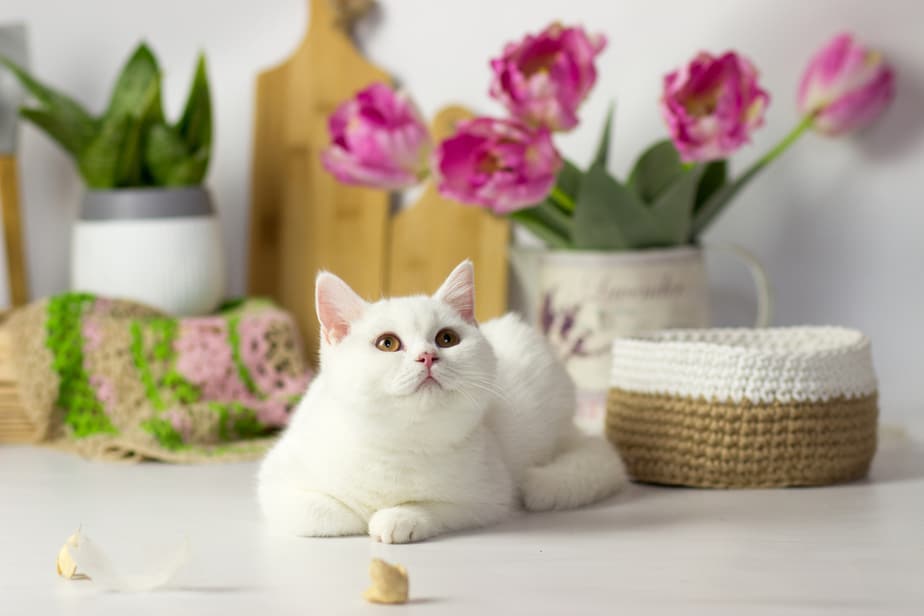
Can cats eat black beans and should they? I hope I managed to explain the advantages and disadvantages of these black snacks for your cat.
We must always choose the best choice for our furry babies, so black beans can come in handy at times. They’re a great addition to her diet, but they should never replace her primary diet – meat.
You could be deceived by the amount of protein these veggies have to offer, which is understandable. However, what’s important to note is that your feline is a carnivore, so her body is not designed to break down plant materials.
Therefore, black beans and other types such as green beans are perfect for an occasional snack. You can even add them to her wet food. Just make sure you’ve cooked them previously.
In short, your furry feline would do best by avoiding raw beans because they could be potential disease carriers and a choking hazard.
